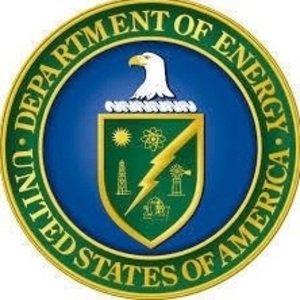US DOE announces $79 million for bioenergy research, development

May 3, 2019
BY U.S. DOE
The U.S. DOE announced May 3 more than $79 million in funding for bioenergy research and development including biofuels, bioproducts and biopower. This funding supports DOE’s goal of providing consumers and businesses with a range of domestic energy options that are affordable, reliable and secure.
“At DOE, we are focused on expanding America’s energy supply, growing the economy and enhancing energy security, which will all be furthered by the significant advancements made in bioenergy technologies,” said Mark Menezes, the undersecretary of energy. “The funding opportunities announced today will help ensure our nation’s competitive advantage in the emerging bioeconomy and allow us to continue to offer U.S. consumers and businesses more homegrown energy choices.”
The funding opportunity announcement (FOA) topics will advance DOE’s Bioenergy Technology Office’s objectives to reduce the price of drop-in biofuels, lower the cost of biopower and enable high-value products from biomass or waste resources. Topics areas for this funding opportunity include the following:
-Cultivation Intensification Processes for Algae: Develop technologies for outdoor algae systems that increase the harvest yield, reliability and quality of algae.
-Biomass Component Variability and Feedstock Conversion Interface: Research to lower the cost and improve the reliability of biomass handling and preprocessing.
Advertisement
Advertisement
-Efficient Wood Heaters: Develop technologies to reduce emissions and increase efficiency of wood heaters for residential heating.
-Systems Research of Hydrocarbon Biofuel Technologies: Integrate new technologies and processes in experimental prototype systems to improve and verify real-world performance and lower the cost of drop-in biofuels.
-Optimization of Biomass-derived Jet Fuel Blends: Identify and develop cost-competitive drop-in renewable jet fuel with improved energy density and lower particulate matter emissions.
-Renewable Energy from Urban and Suburban Wastes: Support academic research and educational programs that focus on strategies to produce bioenergy and bioproducts from urban and suburban waste feedstocks.
Advertisement
Advertisement
-Advanced Bioprocessing and Agile BioFoundry: Reduce the time and cost of developing biological processes for biomanufacturing fuels and products through the use of synthetic biology, low capital intensity methods and continuous production systems.
-Plastics in the Circular Carbon Economy: Develop biobased plastics with improved performance and recyclability and lower the cost and energy-intensity of recycling existing plastics through enhanced degradation.
-Rethinking Anaerobic Digestion: Develop anaerobic processes or alternative strategies to enhance carbon conversion efficiency and lower costs of smaller-scale wet waste systems.
-Reducing Water, Energy and Emissions in Bioenergy: Identify biofuels or bioproducts technologies with the greatest potential for reducing water consumption, energy consumption and/or emissions relative to existing conventional fuels or products.
This FOA also supports the Water Security Grand Challenge, a White House initiated, DOE-led framework to advance transformational technology and innovation to meet the global need for safe, secure and affordable water. In particular, this funding will support research and development focused on anaerobic digestion, a technology that can help achieve the Grand Challenge’s goal to double resource recovery from municipal wastewater.
For more information, read the full FOA on the EERE Exchange website.
Related Stories
The USDA has announced it will delay opening the first quarterly grant application window for FY 2026 REAP funding. The agency cited both an application backlog and the need to disincentivize solar projects as reasons for the delay.
CoBank’s latest quarterly research report, released July 10, highlights current uncertainty around the implementation of three biofuel policies, RFS RVOs, small refinery exemptions (SREs) and the 45Z clean fuels production tax credit.
The U.S. EPA on July 8 hosted virtual public hearing to gather input on the agency’s recently released proposed rule to set 2026 and 2027 RFS RVOs. Members of the biofuel industry were among those to offer testimony during the event.
The USDA’s Risk Management Agency is implementing multiple changes to the Camelina pilot insurance program for the 2026 and succeeding crop years. The changes will expand coverage options and provide greater flexibility for producers.
President Trump on July 4 signed the “One Big Beautiful Bill Act.” The legislation extends and updates the 45Z credit and revives a tax credit benefiting small biodiesel producers but repeals several other bioenergy-related tax incentives.
Upcoming Events










